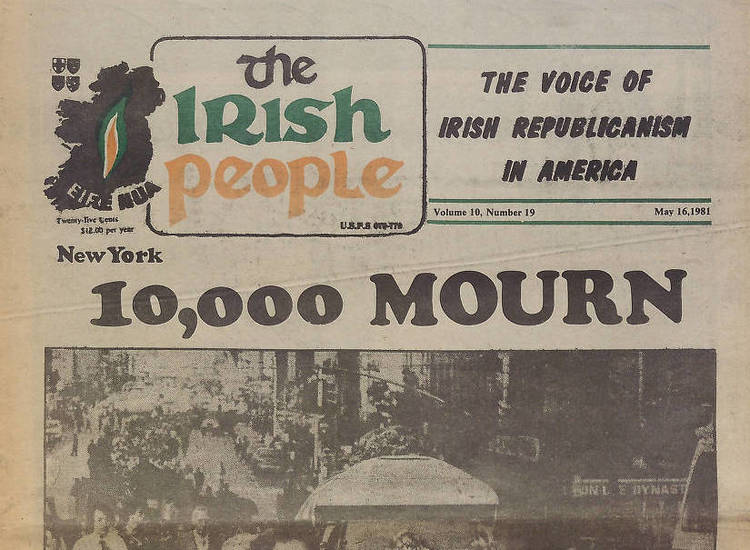Did you know that the first opinion polls can be traced back to The Harrisburg Pennsylvanian in the USA almost 200 years ago?
On that occasion the poll was to give its readers a view of the public mood in a presidential election between John Quincy Adams and Andrew Jackson, whose parents were "Scots Irish" from the north of Ireland.
But it was in the 20 century that they really took off with pollsters like George Gallup and Louis Harris coming into their own.
As with the Harrisburg Pennsylvanian, much of the focus was on presidential elections. Would it be Woodrow Wilson, or Alf Landon, or Franklin D Roosevelt, or Truman, or Kennedy.
Opinion polls are now a permanent feature of political life, although business now use them extensively as a marketing tool.
Eventually, like lots of others things, opinion polls made their way to this side of the Atlantic.
One opinion poll published two weeks ago attracted a lot of media interest both here and in the United States because it reflected in part on attitudes to a united Ireland.
The poll claimed that only 16 percent of the population of the north and 33 percent of Catholics favor a united Ireland.
It caused jubilation in some unionist circles. Given our experience with inexact, and occasionally totally wrong opinion polls over many years, most nationalists and republicans took a much more relaxed attitude.
The unionist response was predictable. Unionist politicians are continually seeking reassurance on the union. It is a measure of the insecurity of the unionist political elite, and the impact of partition of Ireland which many of them know makes no sense politically or economically.
One reason why political unionism either opposes the Good Friday Agreement, and seeks to change it, is that for the first time there is an international treaty, between the British and Irish governments, an equivalence between the union and the desire for a united Ireland.
In the negotiations which led to the Good Friday Agreement, Sinn Féin succeeded in getting the British to scrap the Government of Ireland Act through which it claimed jurisdiction over a part of Ireland. This was a significant development.
And the strength of the agreement's position on the constitutional question was exemplified two weeks ago when the British Prime Minister addressed the Assembly. David Cameron reminded the assembled MLAs that "as the agreement makes very clear," the constitutional future of the North does not rest in his hands, or those of his government, but in the hands of the people.
It is for the people to decide whether the retains its link to Britain "or whether it's to be part of a united Ireland."
Later, when he was privately challenged on this by the leader of the Ulster Unionist Party, the British Prime Minister stuck by this position.
The reality is that, contrary to Margaret Thatcher's claim many years ago, the North is not as British as Finchley. And in their hearts, unionists know this.
So, in this context, what significance should be attached to that opinion poll?
As has often been said, the only opinion poll that matters is the one in which people put their mark on a ballot paper and that into a ballot box for counting. Everything else is just so much speculation.
I remember when Sinn Féin first put forward candidates for an Assembly election. It was 1982, the year after the hunger strike. The BBC organized an opinion poll. It concluded that Sinn Féin would win no seats and that we would take somewhere around three percent of the vote. Sinn Féin was dismissed as irrelevant.
In the end Sinn Féin won five seats, 10 percent of the vote, and our emergence as an electoral force in northern politics was the story of the election.
In the years since then the unionist vote has slipped. In the 1980s, the combined unionist vote was regularly around 60 percent of the total. This has now declined to around 50 percent.
The combined nationalist vote in the Assembly election a few months ago was 41.4 percent. Clearly this is at odds with what people actually do when presented with the opportunity to vote.
And this is the key.
Opinion polls are useful guides. But that is all they are. Often they get it wrong.
If Sinn Féin was to take this opinion poll seriously we would be in crisis. According to it we have 11 percent of the vote.But in May, Sinn Féin took almost 27 percent of the vote!
And it is in this new situation that the opportunity for promoting Irish unity is greater than ever before.
The Good Friday Agreement provides for a legislative road to Irish unity. There is a constitutional mechanism in place to end the union and partition.
Irish unity will not be won through opinion polls. It will be achieved by persuading citizens to vote in a referendum for that option, and to do so in a way which ensures maximum support and political stability. I believe we can do this.










